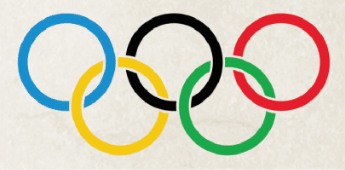THE OLYMPICS THROUGH THE YEARS
The first written record of the ancient Olympic Games dates back to 776 BC when a cook named Coroebus won the only event–a 192-meter footrace called the “stade” and became the first Olympic champion. The ancient Olympic Games were primarily a part of a religious festival in honour of Zeus, the father of the Greek gods and goddesses. The festival and the games took place in Olympia. The first modern Olympics started in Athens, Greece, in 1896. In the opening ceremony, King Georgios I and a crowd of 60,000 spectators welcomed 280 participants from 13 nations (all male), who would compete in 43 events, including track and field, gymnastics, swimming, wrestling, cycling, tennis, weightlifting, shooting, and fencing. The Olympics truly became an international sporting event after 1924, when the 8th Games were held in Paris. Around 3.000 athletes (with more than 100 women among them) from 44 nations competed that year, and for the first time the Games featured a closing ceremony. Eighty years later, when the 2004 Summer Olympics returned to Athens for the first time in more than a century, nearly 11,000 athletes from 201 countries competed. The official symbol of the modern Games is five interlocking coloured rings, symbolizing the continents of North and South America, Asia, Africa, Europe and Australia. The Olympic flag, featuring this symbol on a white background, flew for the first time at the Antwerp Games in 1920.

